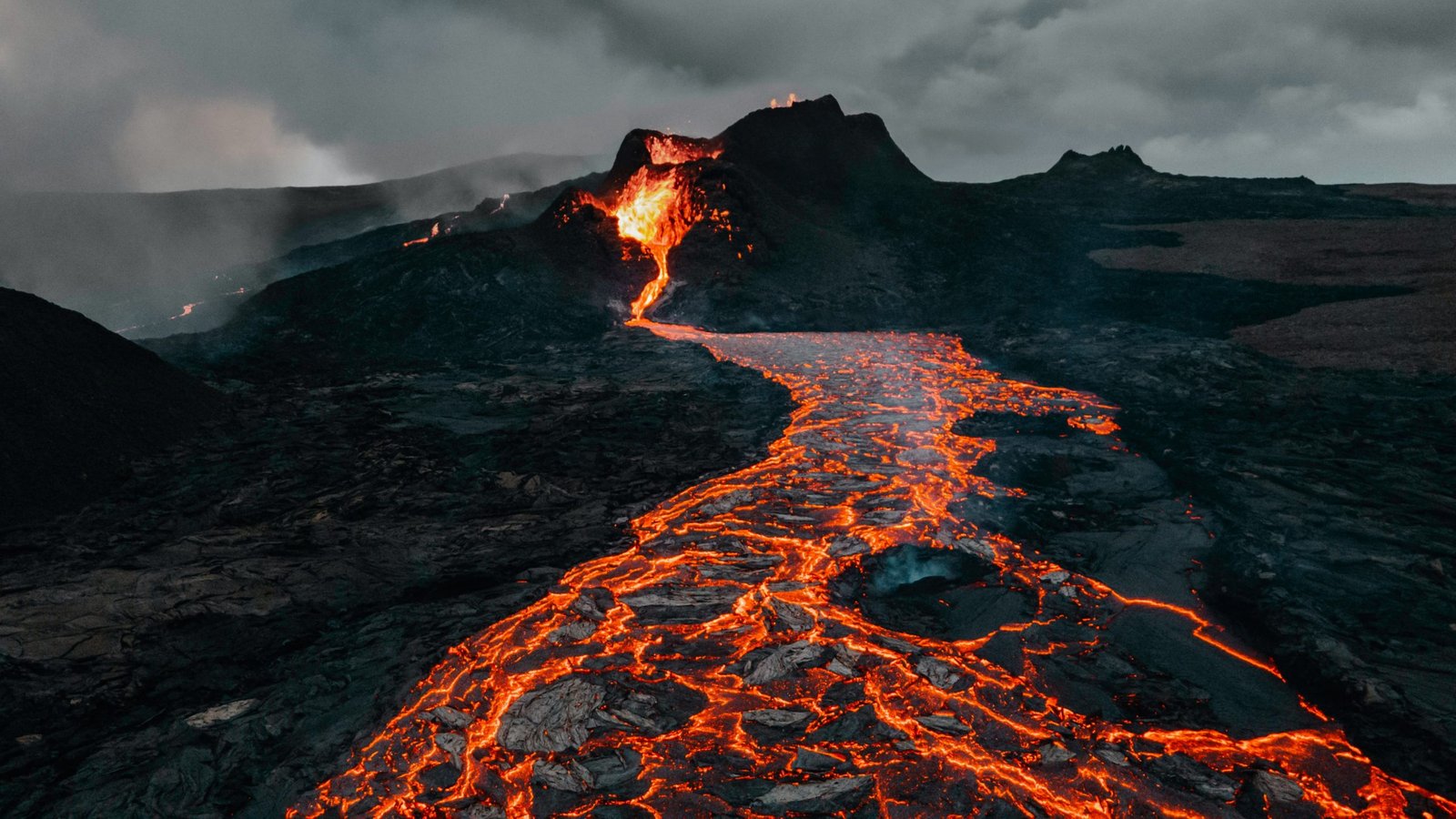Volcanoes in the Quran: Geological Signs and Scientific Facts
The Quran, revealed over 1,400 years ago, contains descriptions and references to natural phenomena that continue to fascinate scientists and researchers. One of the most powerful and dramatic forces of nature, volcanoes, is also hinted at in several verses. This article explores how the Quran touches on volcanic activity, how it aligns with geological facts, and what lessons can be drawn from this divine discourse.
Quranic Verses Hinting at Volcanic Activity
The Quran does not explicitly use the word “volcano,” yet it references events and landscapes that scholars interpret as volcanic or geologically intense.
Descriptions of Fiery Destruction
-
Surah Al-Qari’ah (101:4-5) describes a day when mountains will become like wool, and the earth will be shaken.
-
These verses are often linked to cataclysmic events like volcanic eruptions, given the imagery of fire, trembling, and transformation.
-
The volcanic destruction of past nations, such as the people of Thamud, has also been connected to these signs.
Imagery of Molten Materials
-
Surah Ar-Rahman (55:35) mentions flames of fire and molten brass, which align with volcanic materials like lava and ash.
-
The blend of fire and molten matter resonates with how magma erupts from within the Earth.
-
This verse could be seen as both a warning and a geological insight.
References to Earth’s Convulsions
-
Surah Az-Zalzalah (99:1-2) states: “When the Earth is shaken with its (final) earthquake.”
-
This powerful description can be connected to tectonic and volcanic activity.
-
It serves as a metaphor for divine upheaval, as well as a literal geological occurrence.
The Geological Formation of Volcanoes
Modern geology provides a detailed understanding of how volcanoes form through tectonic movement and magma chambers beneath the Earth’s crust.
Role of Tectonic Plates
-
Volcanoes typically form along tectonic boundaries where plates diverge or converge.
-
The pressure between these plates forces magma to the surface.
-
This movement causes earthquakes, which often precede volcanic eruptions.
Magma and Lava Explained
-
Magma is molten rock stored in Earth’s crust; when it erupts, it’s known as lava.
-
Lava flow shapes landscapes, creates new landforms, and supports unique ecosystems.
-
This concept of transformation aligns with Quranic verses about changing terrains.
Types of Volcanoes
-
Stratovolcanoes are explosive and conical.
-
Shield volcanoes have gentle slopes and frequent eruptions.
-
Cinder cones are small with steep slopes and sudden bursts.
-
Each type reflects different geological processes, demonstrating the complexity of Earth’s creation.
Scientific Miracles of the Quran
Scholars of Islamic science often highlight how the Quran contains knowledge that predates modern discoveries.
Pre-modern Knowledge of Earth’s Layers
-
The Quran refers to the Earth’s layered structure in Surah At-Talaq (65:12): “Allah created seven heavens and of the earth, the like of them.”
-
Geologists later confirmed multiple layers of Earth—crust, mantle, outer core, and inner core.
Mountains as Stabilizers
-
Surah An-Naba (78:6-7): “Have We not made the earth as a bed and the mountains as pegs?”
-
This corresponds with the geophysical concept that mountains act like stabilizers of the Earth’s crust.
Fiery Elements Within Earth
-
Verses referring to fire from within the Earth parallel the reality of the hot mantle and molten core.
-
This reflects divine knowledge of Earth’s structure long before it was scientifically validated.
Historical Eruptions and Quranic Narratives
Certain historical eruptions may mirror or provide insight into Quranic references and divine punishment.
Pompeii and the Fire of Punishment
-
The Roman city of Pompeii was destroyed by a volcanic eruption in 79 CE.
-
Though not mentioned in the Quran, it is an example of sudden destruction by natural forces.
Arabian Peninsula Volcanism
-
The Harrat Rahat region near Madinah witnessed an eruption in 1256 CE.
-
It is one of the largest volcanic fields in the Arabian Peninsula, historically documented by Muslim scholars.
Destruction of Thamud
-
The punishment of the Thamud people involved a “mighty blast” (Surah Hud 11:67).
-
Some scholars believe this could have been a volcanic eruption or earthquake.
Quranic Language and Natural Warnings
-
Quranic verses use metaphor, imagery, and direct warnings to emphasize the might of Allah’s creation.
-
These natural events are often linked to moral messages for humanity.
-
Volcanoes, as violent yet natural events, are reminders of divine power.
-
Such signs invite reflection and spiritual awakening.
Reflection and Lessons from Volcanic Phenomena
-
The Quran invites readers to observe nature and learn.
-
Volcanoes show both beauty and destruction — dual aspects of Allah’s creation.
-
They remind us of the transience of worldly life.
-
Studying them deepens our awe and understanding of the Creator’s wisdom.
Why Volcanoes Are Spiritually Significant
-
They are signs of transformation, much like personal spiritual journeys.
-
The Quran uses natural events to awaken human conscience.
-
They signify the Day of Judgment and divine reckoning.
-
These events bring humility, reminding us of our place in the vast creation.
How Muhammadan Quran School Encourages Quranic Science
-
Students are taught to reflect on Quranic verses beyond memorization.
-
Scientific interpretations are discussed in an Islamic framework.
-
The curriculum supports curiosity about the natural world.
-
Lessons highlight harmony between science and revelation.
Conclusion
Volcanoes, as powerful and mysterious natural events, are not just geological phenomena but divine signs that align with verses of the Holy Quran. They reflect Allah’s might and control over the universe and serve as reminders of both His mercy and justice. At Muhammadan Quran School, children and adults are encouraged to explore such Quranic themes deeply. Through our online Quran classes, learners worldwide can reflect on both the Book and the world in light of divine wisdom.


